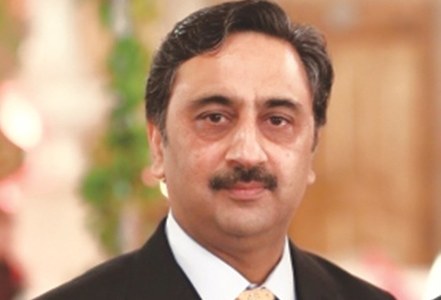Pakistan urges World Bank to stop Indian projects on Neelum, Chenab
WASHINGTON: Pakistan took its case on the Indus Waters Treaty to the World Bank on Tuesday, urging it to prevent India from making illegal constructions on the Neelum and Chenab rivers, embassy officials said on Tuesday.
“In the meeting with the Pakistani delegation, the World Bank committed itself to timely fulfilling its obligations under the treaty while remaining neutral,” said a statement issued by the Pakistan Embassy in Washington.
A Pakistani delegation, led by Attorney General Ashtar Ausaf Ali, met senior World Bank officials at its headquarters in Washington to discuss Pakistan’s recent request for arbitration under Article IX of the Indus Waters Treaty (IWT), 1960.
Read: Delhi decides to suspend Indus Water Commission talks
The IWT is a water-distribution agreement between India and Pakistan, brokered by the World Bank and was signed in Karachi on Sept 19, 1960 by President Ayub Khan and Prime Minister Jawaharlal Nehru.
The treaty gives India complete rights to waters of the Eastern Rivers (Ravi, Sutlej and Beas) and gives Pakistan the rights over the Western Rivers (Indus, Jhelum and Chenab) with limited allowance for use of water by India from the western rivers for purposes of, among others, power generation.
Its Article IX deals with arbitration of disputes between the parties concerning the interpretation or application of the treaty or the existence of any fact which, if established, might constitute a breach of the treaty.
The treaty provides specific design criteria for any hydroelectric power plants to be built by India.
Pakistan has held the position that the Kishenganga and Ratle hydroelectric plants violate the design parameters of the treaty.
The differences on the designs of the two plants were discussed but could not be resolved in the 108th, 109th, 110th, 111th and 112th meetings of the Permanent Commission for Indus Waters, comprising one commissioner from each country, which is responsible for the implementation of the treaty. Secretary-level talks were then held between governments of India and Pakistan on July 14 and 15 this year.
After the failure of secretary-level talks, on Aug 19, Pakistan initiated formal dispute settlement proceedings under the treaty.
On Aug 19, the government of Pakistan formally requested the government of India for settlement of outstanding disputes over India’s construction of Kishenganga and Ratle hydroelectric plants on rivers Neelum and Chenab respectively, by referring the matters to the Court of Arbitration as provided in Article IX of the treaty.
Pakistan reminded the World Bank that the treaty gives the bank an important role in establishing a court of arbitration by facilitating the process of appointment of three judges, called Umpires, to the Court. India and Pakistan each appoint two arbitrators.
In their meetings with World Bank officials, the Pakistani delegation insisted on early appointment of the judges and setting up the court. The delegation consisted, besides the attorney general, of Water and Power secretary Muhammad Younus Dagha; Pakistan’s Commissioner for Indus Water Mirza Asif Baig; and Joint Secretary (Water) Ahmad Irfan Aslam.
Pakistan’s Ambassador to the United States Jalil Abbas Jilani and World Bank’s Executive Director for Pakistan Nasir Khosa also participated in the talks.
The World Bank was represented by Senior Vice President Anne-Marie LeRoy; Vice President for South Asia Annette Dixon; Deputy General Counsel for Operations Alberto Ninio; Chief Counsel for South Asia Melinda Good; and Senior Counsel for International Waterways Victor Mosoti.
The treaty was signed in 1960 after India started interfering with the water flowing downstream by stopping water on rivers Ravi and Sutlej from April 1, 1948.
An Indian newspaper, The Hindu, reported on Monday that India has decided to suspend Indus Water Commission talks until “Pakistan-sponsored terror” in India ends.
The decision was taken at a meeting presided over by Prime Minister Narendra Modi to review the treaty with Pakistan amid heightened tension between the two countries.
India’s National Security Adviser Ajit Doval, Foreign Secretary S. Jaishankar, the water resources secretary and senior officials were present at the meeting, the paper said.
But a former commissioner for the treaty, Syed Jamaat Ali Shah told Dawn that India’s decision to suspend talks on the treaty means that there will be no meetings, as described in the agreement, between the commissioners of the two countries in future.
Sources told The Hindu that while the treaty was not reviewed at the meeting, steps to utilise India’s western rivers in a better way were discussed.
Published in Dawn, September 28th, 2016













































